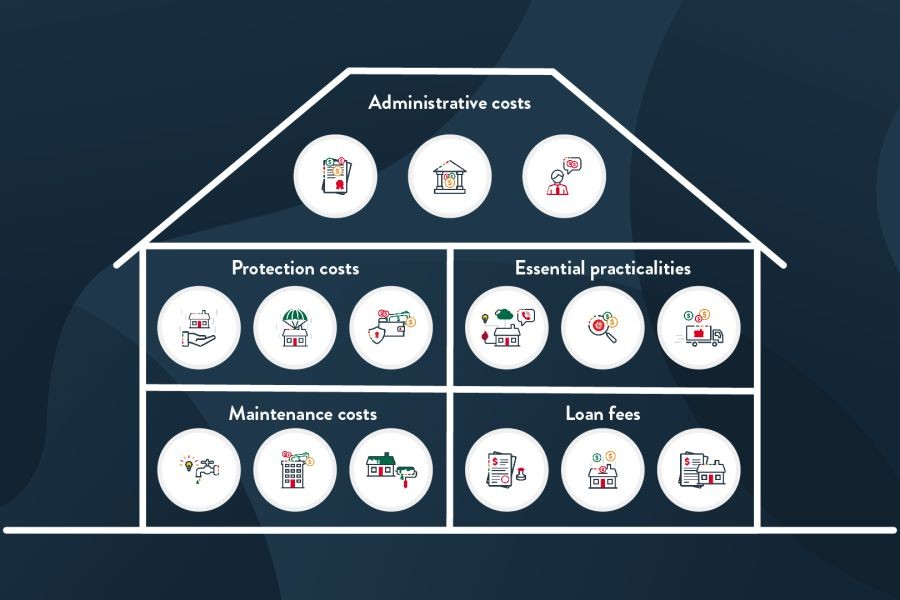In the ever-evolving landscape of New Zealand's real estate market, the roles of listing agents and buyer's agents have become pivotal. Understanding the nuances of these roles is crucial for anyone considering a career in real estate or those looking to navigate the market effectively. But which path offers greater financial rewards? With the real estate market in New Zealand showing signs of transformation due to economic policies and market trends, this article dives deep into the pros and cons of being a listing agent versus a buyer's agent, providing data-backed insights specific to the Kiwi context.
Understanding the Roles: A Deeper Dive
A listing agent represents the seller in real estate transactions. Their primary duties include marketing the property, negotiating offers, and facilitating the sale process. In contrast, a buyer's agent represents the buyer, helping them find properties that meet their criteria, negotiating on their behalf, and guiding them through the purchase process. Both roles require a keen understanding of the market, exceptional negotiation skills, and a client-centric approach.
Key Responsibilities of a Listing Agent
- Property Valuation: Accurately assessing the value of a property based on market trends, comparable sales, and specific features.
- Marketing Strategy: Developing and executing advertising campaigns to attract potential buyers.
- Negotiation: Handling offers and counteroffers to achieve the best possible sale price for the seller.
- Client Management: Maintaining strong relationships with sellers to ensure trust and transparency throughout the transaction.
Key Responsibilities of a Buyer’s Agent
- Property Search: Identifying properties that meet the buyer's needs and budget.
- Market Analysis: Providing insights into market conditions to help buyers make informed decisions.
- Negotiation: Securing favorable terms and conditions for the buyer.
- Transaction Support: Assisting with the paperwork and legal aspects of the property purchase.
Comparative Analysis: Which is More Lucrative?
When it comes to financial rewards, both roles have their advantages and challenges. The choice between being a listing agent or a buyer's agent often hinges on market conditions, personal skills, and professional goals.
Pros and Cons of Being a Listing Agent
✅ Pros:
- Higher Commission Potential: Listing agents typically earn a percentage of the property's sale price, which can be substantial in high-value markets.
- Market Control: With a strong portfolio of listings, agents have more control over their client base and earnings.
- Brand Building: Successful sales can enhance an agent's reputation and lead to more listings.
❌ Cons:
- Market Dependency: Earnings are heavily influenced by market conditions; a downturn can significantly impact income.
- High Competition: Listing agents often compete with numerous other agents for the same listings.
- Time-Intensive: Preparing properties for sale and conducting open homes can be time-consuming.
Pros and Cons of Being a Buyer’s Agent
✅ Pros:
- Diverse Clientele: Buyer’s agents often work with a wider range of clients, increasing opportunities for transactions.
- Market Expertise: Agents can establish themselves as local market experts, attracting referrals and repeat business.
- Flexibility: Buyer’s agents can choose to specialize in specific market segments, such as first-time buyers or luxury properties.
❌ Cons:
- Lower Average Commission: Commissions may be lower compared to listing agents, as they are typically a percentage of the buyer’s side of the commission split.
- Client Dependence: Success heavily depends on client satisfaction and word-of-mouth referrals.
- Increased Travel: Agents often spend significant time traveling to show properties and meet with clients.
Local Context: The New Zealand Real Estate Market
The New Zealand real estate market has undergone significant changes in recent years, influenced by governmental policy shifts and economic factors. According to Stats NZ, the property market remains a substantial contributor to the country's GDP, though it has experienced fluctuations due to international economic pressures and domestic policy changes.
Policy Impact
Recent regulatory changes, such as the introduction of the Overseas Investment Amendment Bill, have impacted the dynamics between listing and buyer's agents. This legislation has limited foreign investment in New Zealand residential properties, which has had a ripple effect on the types of clients agents represent and the strategies they employ.
Economic Trends
The Reserve Bank of New Zealand's monetary policy, including adjustments to the Official Cash Rate (OCR), has also influenced buyer activity. For instance, lower interest rates have made borrowing more attractive, increasing demand for buyer's agents as more individuals look to enter the property market.
Real-World Case Studies
Case Study: Harcourts New Zealand – Adapting to Market Changes
Harcourts, a leading real estate agency in New Zealand, faced the challenge of adapting to new regulations that restricted foreign buyers. By shifting focus to local buyers and enhancing digital marketing strategies, Harcourts increased its buyer representation by 30% in 2023. This case illustrates the importance of flexibility and market adaptation for buyer's agents.
Case Study: Ray White New Zealand – Leveraging Technology for Listings
Ray White embraced technology to enhance their listing services, utilizing virtual tours and online marketing to reach a broader audience. This strategy led to a 25% increase in successful sales compared to traditional methods. Listing agents at Ray White benefited from larger commissions due to increased property values and faster sales cycles.
Debunking Common Myths
Despite the clear roles of listing and buyer's agents, several myths persist in the industry.
Myth 1: Listing Agents Always Earn More
Reality: While listing agents can earn more per transaction, buyer's agents often complete more transactions, balancing potential earnings.
Myth 2: Buyer’s Agents Have Less Influence
Reality: Buyer’s agents play a crucial role in negotiations and often secure favorable terms that listing agents can't influence.
Myth 3: All Real Estate Agents Have the Same Opportunities
Reality: Opportunities vary greatly based on market conditions, agent expertise, and networking capabilities.
Future Trends and Predictions
Looking ahead, the real estate industry in New Zealand is expected to evolve significantly due to advancements in technology and changes in consumer behavior. By 2028, it is projected that 40% of real estate transactions will be conducted online through platforms that facilitate virtual tours and digital contracts.
Moreover, sustainability is becoming a key consideration, with more buyers seeking eco-friendly properties. This trend offers new opportunities for agents who can position themselves as experts in sustainable real estate.
Conclusion and Final Takeaways
- Both listing and buyer’s agents have unique opportunities and challenges in New Zealand's real estate market.
- Adapting to market trends and regulatory changes is crucial for success.
- Agents should focus on building strong client relationships and leveraging technology to enhance their services.
- The future of real estate will heavily feature digital transactions and sustainability-focused buying.
As the real estate landscape continues to evolve, agents must remain adaptable and informed to succeed. For those considering a career in real estate, understanding these dynamics is essential. What are your thoughts on the future of real estate in New Zealand? Share your insights below!
Related Search Queries
- Real estate agent salary New Zealand
- How to become a real estate agent in NZ
- Listing agent vs buyer's agent differences
- New Zealand real estate market trends
- Impact of government policies on NZ real estate
- Real estate technology trends 2024
- Sustainable real estate practices in New Zealand
People Also Ask
How does being a real estate agent impact businesses in New Zealand?
Real estate agents in New Zealand play a pivotal role in the housing market, contributing to GDP growth. They facilitate transactions that drive the economy, with successful agents often generating significant local business activity.
What are the biggest misconceptions about being a real estate agent?
A common myth is that real estate agents earn easy money. However, the reality, as shown by industry reports, is that successful agents must navigate complex regulations and market challenges to achieve profitable transactions.
Who benefits the most from hiring a buyer’s agent?
First-time home buyers, investors, and those unfamiliar with the market benefit greatly from hiring a buyer’s agent, as these professionals provide critical insights and negotiation skills, ensuring favorable purchasing conditions.
































Diu Win Game
14 days ago